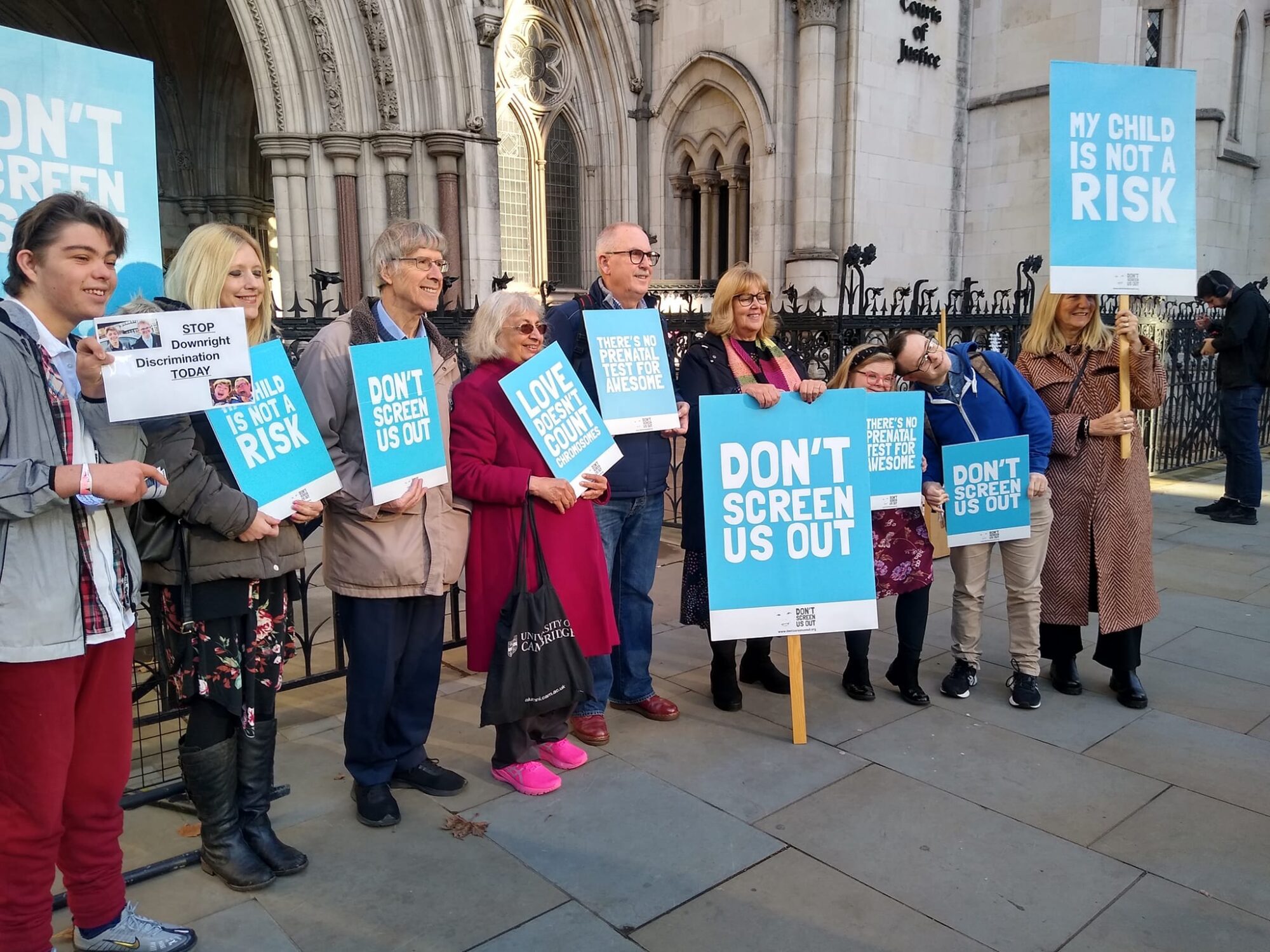
Heidi Crowter is not giving up her fight for equal treatment of people like herself with Down syndrome.
Crowter, a 27-year-old advocate for people with Down syndrome, has been challenging the UK’s abortion law as fundamentally discriminatory for allowing a wider time limit on abortion when a potential disability of the baby is diagnosed.
She is three years into her fight, and though she has lost the first two rounds at the judge’s bench, she is not giving up. She appealed the most recent disappointing decision on November 25th, and plans to take her case to the country’s supreme court.
We face discrimination every day in schools, in the workplace, and, thanks to this verdict, the judges have upheld discrimination in the womb which is downright discrimination,” Crowter said. “I won’t give up either because the law should be changed to get rid of a negative focus on Down’s syndrome.
Crowter brings the charge of discrimination against a clause in the abortion law that allows abortion up to birth, on the grounds of a foreseeable handicap in the unborn baby, including cases of Down syndrome, while abortion of non-disabled babies is only allowed up to the 24th week of pregnancy.
Máire Lea-Wilson, 33, whose young son Aidan has Down syndrome has joined Crowter as a claimant in the case.
“It has become ever increasingly clear to me that Section 1(1)d of the Abortion Act, which differentiates the time limit for abortion, sets the tone for discrimination against people with Down syndrome which starts before they are born and continues throughout their life with devastating consequences,” Lea-Wilson, who also has a son without Down Syndrome, said in a statement earlier this year. “What does this law say to people like my son? That his life isn’t as valuable as his older brother’s? How will that make him feel? How will I explain it to him?”
Crowter and Lea-Wilson’s case charged that the clause discriminated against both the preborn and the born with the chromosomal condition, but the appeals court agreed to hear only the claim that the clause was biassed against the born, since, as it pointed out, the preborn do not have legal rights in the UK. The legal challenge states that the UK’s abortion law constitutes an interference with the rights to private and family life of born persons with Down syndrome as it promotes negative stereotypes about them.
Unfortunately, the appeal was lost.
“The court recognises that many people with Down’s Syndrome and other disabilities will be upset and offended by the fact that a diagnosis of serious disability during pregnancy is treated by the law as a justification for termination, and that they may regard it as implying that their own lives are of lesser value,” the judges ruled. “But it holds that a perception that that is what the law implies is not by itself enough to give rise to an interference with article 8 rights (to private and family life, enshrined in the European Convention on Human Rights).”
Abortion advocate Clare Murphy, chief executive of the British Pregnancy Advisory Service, which performs abortions, praised the ruling.
“If successful, this case could have had far-reaching implications. The claimants have argued in court that foetuses should have human rights—this has never been decided in law and would go against many years of legal precedent in the UK,” she told the BBC.
She added that the case, if successful, would affect not only abortion but “decisions during childbirth.”
Paul Conrathe, the solicitor for the case, called the ruling “disappointing and perplexing.”
“Rather than affirming the equal value of those with disabilities, it further adds to the stigmatisation they suffer. This is for the simple reason that the court concluded that the perceptions of people with disabilities about a law which allows the ending of a life because of disability are irrelevant. Yet the law protects the unborn without disabilities, leading to the understandable perception that disabled lives are of lesser value or no value at all,” he said.
Most baffling of all, he explained, is that if the logic of the judgement is followed to its conclusion, the judges have ruled that “the perceptions and feelings of the disabled could not be relied upon to establish an interference with their human rights.”
Both Crowter and Lea-Wilson pledged to fight on.
“I do not regret bringing this case, because I believe it has helped raise awareness around the wonderful lives people with Down syndrome and their families lead, and helped dispel some of the negative, outdated and prejudicial attitudes that are prevalent in society and the medical profession,” Lea-Wilson said. “As Aidan’s mother, I will continue to fight for his rights, and look to appeal this judgement, because equality should be for everyone regardless of the number of chromosomes they have.”
According to Don’t Screen Us Out, a campaign against discriminatory pre-natal screenings for Down’s Syndrome, abortions of unborn babies diagnosed with Down syndrome are on the rise. In 2021, 859 abortions were performed where a baby had Down’s syndrome, an increase of 24% from 2020. Late-term abortions, at 24 weeks or beyond, of babies diagnosed with Down syndrome increased by 71% in the same period, jumping from 14 to 24.
The organization also warns that the actual figures of abortions on the grounds of Down syndrome are likely much higher, as a 2013 review showed that in 2010, 886 unborn babies were aborted for Down syndrome in England and Wales, but only 482 were reported in Department of Health records. A 2014 Department of Health review further confirmed the underreporting.
Crowter’s case is the first challenge to the UK abortion law as discriminatory towards those with disabilities.
Crowter has crowdfunded over £140,000 for the legal expenses of taking the case forward.=
